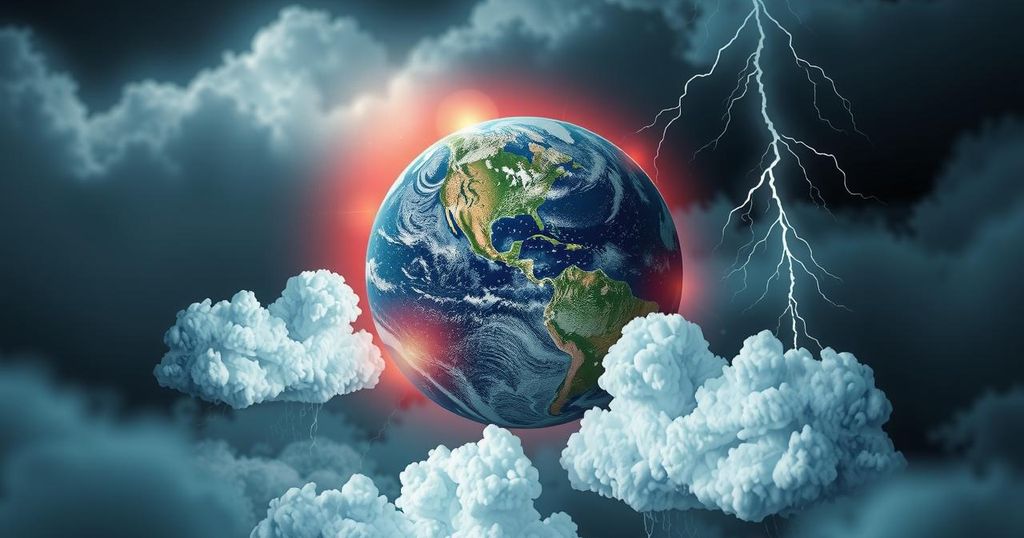Attribution science has developed to assess the relationship between climate change and extreme weather events, revealing that global warming increases risks of disasters like wildfires and floods. This burgeoning field offers crucial insights following climatic disasters, although challenges remain regarding data availability. Researchers underscore the need for consistent methodologies to improve reliability and address accountability in climate impacts.
As the global climate continues to warm, the intensity of extreme weather events has risen, prompting the need for attribution science to evaluate the impact of climate change on specific disasters. This field, which emerged two decades ago, utilizes data and simulations to determine if climate change increased the likelihood and severity of events such as wildfires, floods, and storms. Recent studies indicate that phenomena like the Los Angeles wildfires can be attributed to changing climate conditions fueled by human activities, particularly fossil fuel consumption.
Attribution studies provide crucial insights post-disaster, helping inform governmental policies and aiding public understanding regarding the role of climate change. Leading experts emphasize the importance of these studies for scientists and policymakers alike, as they enhance knowledge of climatic models and assist in future defensive measures against extreme events. Moreover, attribution studies could become instrumental in legal contexts, as exemplified by a case in Peru linking glacier retreat to climate change.
The primary focus of attribution science lies in establishing whether a certain weather event was influenced by a warming climate, and to what extent. Groups such as World Weather Attribution (WWA) have developed robust methodologies to analyze these scenarios, often involving simulations contrasting current climate realities with those before industrialization. Findings from WWA indicate that climate change has heightened the risk of floods, wildfires, and droughts, demonstrating a significant correlation between warming and extreme weather patterns.
Despite advancements, researchers acknowledge limitations, including a lack of observational data in certain regions, particularly Africa. The insufficiency of data can skew analyses and lead to disparities in findings across various studies. Experts advocate for more consistent and systematic approaches in data gathering, especially in the context of legal claims related to climate impacts, to increase the reliability of attribution science.
In summary, while climate change is not the sole cause of extreme weather events, it plays a significant role in increasing their frequency and severity. Certain events, particularly heatwaves and heavy rainfall, exhibit clear links to climate alterations, suggesting that human-induced changes have created conditions with near-zero probabilities of occurrence if not for such influences. Future research must focus on addressing the data gap to further enhance the understanding of climate dynamics.
Attribution science has emerged as a crucial discipline for understanding the direct link between climate change and specific weather disasters. By analyzing various models and empirical data, researchers can assess whether and how the warming climate influences different weather phenomena, such as wildfires or flooding. This field not only assists in understanding current events but also has potential implications for future legal accountability and policy-making related to climate impacts.
The work of attribution science signifies a significant advancement in our understanding of climate change’s role in extreme weather phenomena. While it provides essential insights for policymakers and the public, the methodology faces challenges, including data limitations. Emphasizing the need for systemic approaches to data accumulation and analysis will be paramount for reliable future applications, particularly in legal frameworks and disaster response measures.
Original Source: www.france24.com




